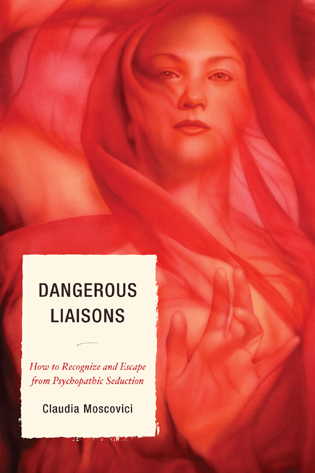You probably have heard on the news about the kidnapping of Jaycee Lee Duguard, when she was only 11 years old. The young girl was kidnapped on June 10, 1991 from a school bus stop near her home and held hostage for more than 18 years by Phillip and Nancy Garrido. Garrido raped and imprisoned Jaycee. They had two girls together (age 11 and 15 at the time they were discovered by the police), whom Garrido and his wife also imprisoned in unsanitary tents in their backyard.
At the time they kidnapped Jaycee, Garrido had already been convicted of a sex crime. Despite the fact that parole officers checked regularly the house, they didn’t bother to look in the couple’s backyard, behind a fence. Nancy Garrido is shown on one tape interfering with the police inspection, harassing the inspector in order to distract him and prevent him from finding Jaycee and the girls. She is a partner in her husband’s crime; a fellow abuser. The couple pled guilty to kidnapping and other charges on April 28, 2011 and were convicted on June 2, 2011. Phillip Garrido was sentenced to 431 years of imprisonment while Nancy received a lesser sentence of 36 years to life.
We see this phenomenon of dangerous duos, or partners in evil, on the news over and over again. What kind of women stay with male psychopaths, enable their wrongdoings, participate in them and then cover them up? Sometimes it’s female psychopaths who partner in crime sprees with their male counterparts. The most notable example of this is Karla Homolka and Paul Bernardo, the young Canadian couple who kidnapped and killed several young women, including Karla’s younger sister. They were convicted in 1993 and are perhaps the inspiration behind Oliver Stone‘s controversial movie, Natural Born Killers (1994). Usually, however, two psychopaths together can’t last long. Each has to outdo the other in wrongdoings; each wants to be top dog; each looks out for number one and, at the slightest provocation, turns against the other (as, in fact, happened in the case of Paul Bernardo and Karla Homolka).
The partnership between Phillip and Nancy Garrido reflects a different dynamic: the equally dangerous yet usually far more enduring combination between a psychopath and a malignant narcissist. In this combination, there is a clear top dog who guides the relationship: the psychopath. However, the malignant narcissist helps him carry out his wrongdoings and covers up for him. What is in it for a malignant narcissist when she teams up with a psychopath? How does this dynamic play out and why does it last? These are the questions I’d like to address next.
I have explained at length the features of a psychopath and why his lack of conscience and empathy, combined with an underlying psychological sadism (enjoyment at causing others pain) would lead him to commit the kinds of crimes Phillip Garrido was found guilty of. But what kind of woman stands by such a man? My hypothesis is: a malignant narcissist. All narcissistic personalities–even those who appear to have high self-confidence and to consider themselves superior to others–crave constant validation. An insatiable need for validation forms the core of unhealthy, excessive narcissism. I say “excessive narcissism” because we all have egos or selves and thus we all have some narcissistic tendencies that are healthy–in moderation–and make us the individuals we are.
Psychopaths are very adept at identifying individuals who suffer from unhealthy, excessive narcissism. Why? Because such individuals appear to be vulnerable and insecure. Caring too much about what others think and pinning one’s self-esteem on the opinions of others is, indeed, a weakness and a vulnerability. Those who suffer from narcissistic personality disorder have a weak and relative sense of self that needs constant validation. They need to feel better than others or superior to others in order to have an identity and feel good about themselves.
Psychopaths form a symbiotic relationship with such highly narcissistic individuals by holding out the promise of becoming a superior and very special couple. Because psychopaths have an inherent sense of superiority and because they’re thrill seekers who consider themselves to be above the rules and laws, they often manage to convince such narcissistic partners that together they make an unbeatable power couple: closer than other couples, better than them, smarter than them, more cunning than them, hotter than them. During the honeymoon phase of the relationship, there are no words in any language to describe this superlative superiority.
The problem is, as we know, that psychopaths inevitably pass from the idealization phase to a devaluation phase in all of their relationships. This is part and parcel of their personality disorder: to become bored with and emotionally detach from every person they are with. Since a narcissistic partner requires constant reassurance of her superiority to other women–especially since the psychopath,with his constant flirting and cheating, gives her plenty of reasons to be jealous of them–she will feel threatened during the devaluation phase, when he no longer finds her hot, virtuous, brilliant, practical, wise, and all the other qualities he formerly (and all too briefly) ascribed to her.
That’s when the most dangerous and pathological aspect of their relationship begins. During the devaluation phase, the malignant narcissist begins to be rewarded almost exclusively by the punishment of other women the psychopath hooks up with, uses, devalues and abuses. She may no longer be as wonderful as she seemed in his eyes in the beginning. However, there’s this reward left in their “special” and “superior” relationship: by staying with her; by needing her as an alibi and cover for him; by harming other women jointly, she proves her (sick) love and loyalty to him while he, in turn, acknowledges her superiority to all the other women he uses and abuses worse than he does her.
The worse other women are treated by the psychopath–in more commonplace cases, used and disposed of like dirty condoms; in extreme cases, raped and murdered–the more this abuse confirms her special status in his eyes. Such women are without conscience, without remorse, without empathy just like the psychopaths themselves. They are manipulative, deceptive and abusive like psychopaths. The main difference between such malignant narcissists and the psychopaths is that the narcissists are in some respects weaker and more vulnerable.
They tend to be followers rather than leaders because of their excessive need for validation, which puts them at the mercy of others and makes them especially appealing to psychopaths: as their partners in life and allies in wrongdoings. If you read about other similar cases to that of Phillip and Nancy Garrido or about the psychology of cult followers, you will see this psychological dynamic at play. There are few more enduring and dangerous duos than these partners in evil: the psychopath and malignant narcissist combo.
Claudia Moscovici, psychopathyawareness
Dangerous Liaisons: How to Identify and Escape from Psychopathic Seduction













